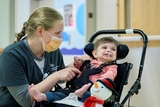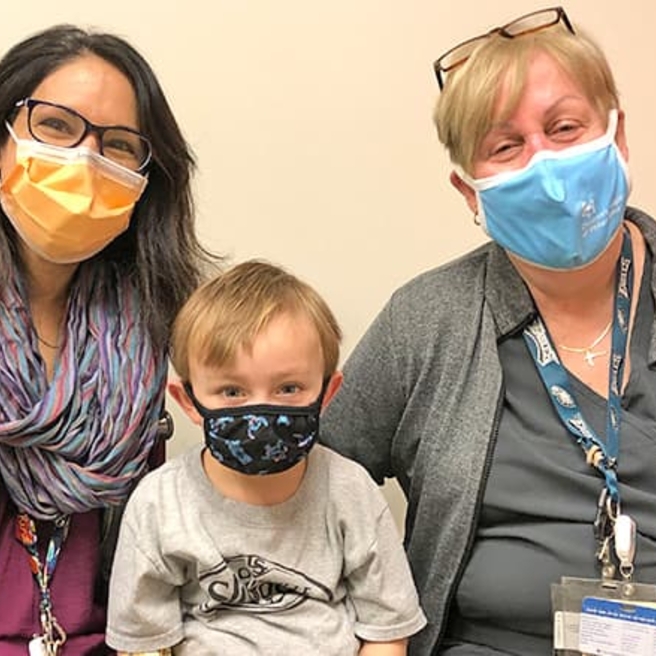Pediatric Transplant Center

The Pediatric Transplant Center at Children's Hospital of Philadelphia (CHOP) offers a team of world-renowned experts who provide everything your child needs for every stage of transplant, from evaluation through long-term, post-surgical care. We treat patients with some of the most complex cases.
Our top-level physicians work with highly trained nurses, psychologists and exercise physiologists to provide the best possible care for your child. CHOP’s transplant capabilities are supported by the hospital’s exceptional depth and breadth of experience in every pediatric specialty.
Our caring team will closely follow your child during treatment, and we will give your entire family the support you need during this challenging time.
How we serve you
To give your child the very best care, our doctors, nurses and other experts are grouped into specially trained teams based on transplant organ. These teams give your child personalized care while building strong relationships with your family.

Why choose CHOP's Pediatric Transplant Center
We manage some of the most complex pediatric cases, performing 40 to 50 organ transplants annually and exceeding national expected outcomes. We care for children of all ages, from the smallest infants through young adults.

Meet your team
Everyone on your child's team has the same goal: to give your child the best possible care. We provide medical care, emotional counseling and much more.

Our locations
Get information about the transplant care we provide at our Philadelphia Campus.

Our research
At CHOP, we are constantly striving to make research discoveries that lead to better treatment options. We study every stage of pediatric transplant, from the conditions that lead to transplantation to outcomes and survivorship.

Our resources
We have gathered resources to give you information and help you find answers to your questions. We hope this makes your family's life a little easier.

Resources for professionals
Everything you need to support your patient’s health, created and updated by our CHOP community of experts.
Your donation changes lives
A gift of any size helps us make lifesaving breakthroughs for children everywhere.


